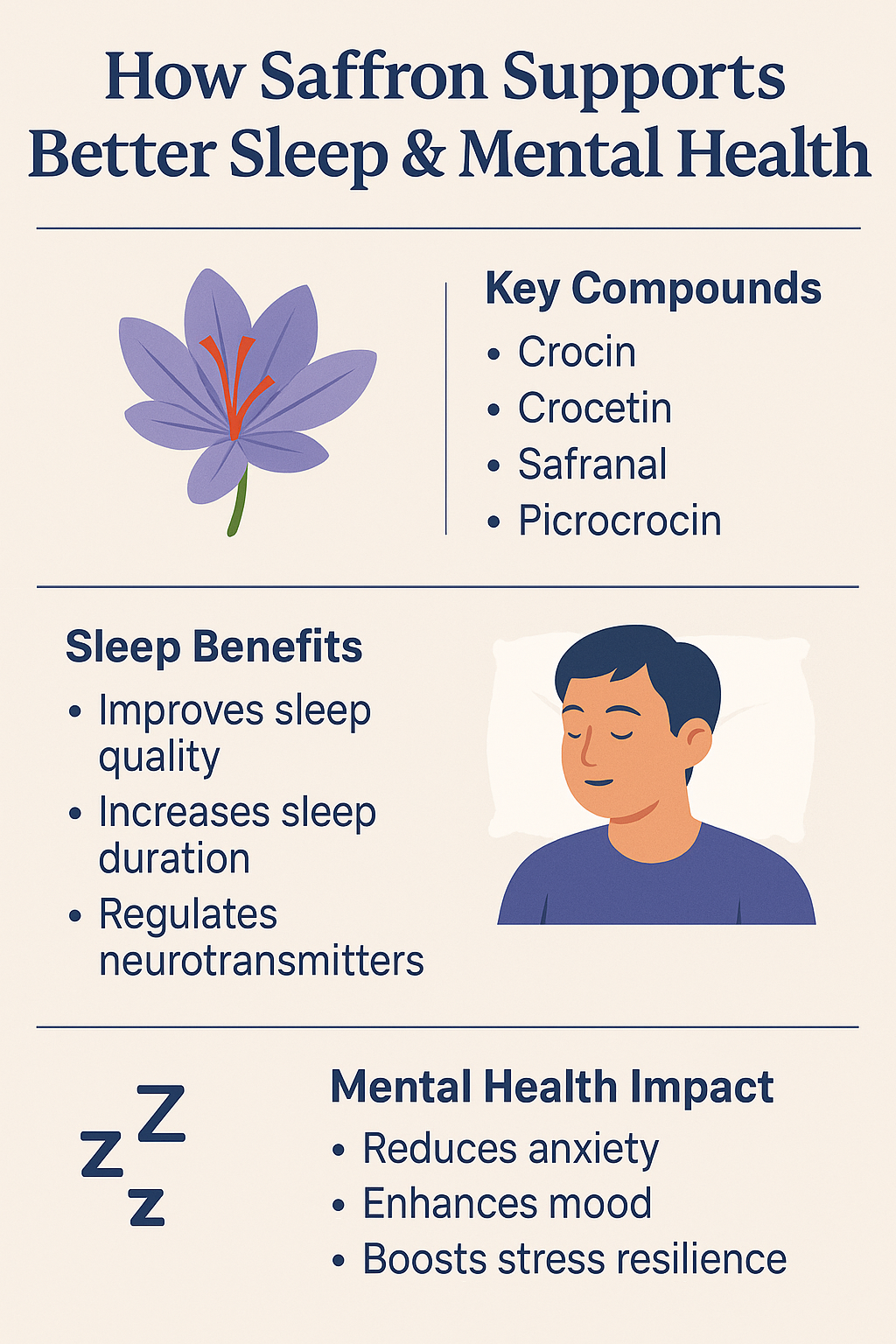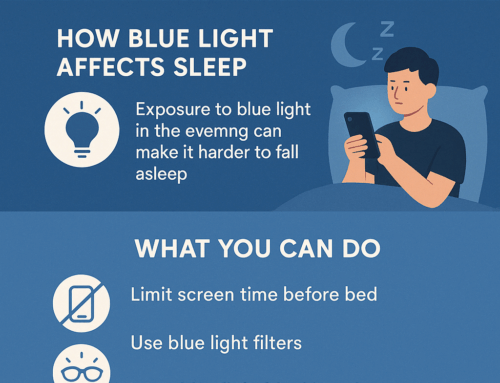How Saffron Can Improve Sleep — And Why That Matters for Your Mental Health
Many of us struggle to get the Sleep we need. Whether it’s due to stress, excessive screen time, a busy schedule, or poor sleep habits, a lack of sleep can have a significant impact on both physical and mental health. To read about the adverse effects of excessive screen time, click here.
One natural remedy that’s gaining attention for its sleep-supporting properties is saffron — the precious spice harvested from the crocus flower. Beyond its culinary uses, saffron has been utilized for centuries in traditional medicine, and modern research is now revealing its potential to enhance sleep quality and promote better mental well-being.
The Science Behind Saffron and Sleep
Saffron contains several active compounds, including:
- Crocin: A carotenoid pigment responsible for saffron’s vibrant red color.
-
Benefits:
-
A powerful antioxidant that protects brain cells from oxidative stress.
-
Supports the balance of dopamine and serotonin, neurotransmitters critical for mood regulation.
-
In animal studies, crocin has been shown to increase non-rapid eye movement (non-REM) Sleep, the deep, restorative phase of Sleep.
-
-
- Crocetin: A carotenoid related to crocin but smaller, more bioavailable (absorbed more easily by the body).
-
Benefits:
-
Supports neuroprotection by reducing inflammation and oxidative damage in the brain.
-
Improves blood flow and oxygen delivery to brain tissues, helping to maintain optimal cognitive function.
-
Some studies suggest that it contributes to reduced sleep latency (faster falling asleep) and improved sleep continuity (fewer awakenings).
-
-
- Safranal: The main compound responsible for saffron’s distinct aroma and flavor.
-
Benefits:
-
Modulates GABA (gamma-aminobutyric acid) activity — GABA is a calming neurotransmitter that helps quiet the brain at bedtime.
-
Acts as a natural anxiolytic (anti-anxiety agent), making it easier to relax and transition into Sleep.
-
Contributes to mood-lifting effects by influencing serotonin pathways.
-
-
Picrocrocin: A glycoside precursor of safranal, giving saffron its characteristic bitter taste.
-
-
Benefits:
-
Mild antioxidant activity.
-
Helps maintain gut-brain axis health — emerging evidence suggests gut health impacts both mood and Sleep.
-
Supports the overall synergistic effect of saffron on mental clarity and relaxation.
-
-
These compounds exhibit antioxidant, anti-inflammatory, and neuroprotective effects that appear to have a positive influence on mood and sleep patterns. While each compound has unique properties, saffron’s true power comes from the synergy between crocin, crocetin, safranal, and picrocrocin. Together, they:
- Balance key neurotransmitters (serotonin, dopamine, GABA)
- Reduce oxidative stress in the brain
- Support anti-inflammatory pathways
- Calm the nervous system to promote deeper, more restorative Sleep
- Enhance emotional well-being by lifting mood and easing anxiety
Several clinical studies have shown that saffron supplementation can improve sleep quality. In a randomized controlled trial published in Complementary Therapies in Medicine (2022), participants who took a standardized saffron extract for six weeks reported significant improvements in sleep quality and sleep duration compared to the placebo group.
Better Sleep = Better Mental Health
We all know how we feel after a poor night’s Sleep: irritable, anxious, unable to focus. Now, imagine that becoming a chronic issue. Sleep and mental health are deeply connected.
Poor Sleep increases the risk of depression, anxiety, and mood instability. On the other hand, improving sleep quality can significantly enhance emotional resilience and mental clarity.
By helping to improve both the quality and quantity of Sleep, saffron can support better mental health in the following ways:
-
Reduced Anxiety: Studies suggest that saffron may reduce anxiety symptoms, which in turn can help calm the mind at night.
-
Improved Mood: Saffron has been shown to enhance serotonin activity, supporting mood balance and emotional well-being.
-
Enhanced Stress Resilience: Better Sleep allows the body to repair and recover from daily stress, making it easier to cope with life’s challenges.
How to Use Saffron for Sleep
If you’re interested in trying saffron to support your Sleep and mental health, here are some tips:
-
Look for a high-quality saffron supplement that has been standardized to contain active compounds.
-
Typical dosages used in studies range from 15 to 30 mg of saffron extract per day.
-
Some people also enjoy a calming saffron tea before bed — simply steep a few threads of saffron in warm water for 10–15 minutes.
-
As with any supplement, talk to your healthcare provider before starting, especially if you are pregnant, nursing, or taking medications.
Good Sleep is one of the pillars of strong mental health. If you’re looking for a natural way to support restful Sleep and promote emotional well-being, saffron may be a worthwhile consideration. With its rich history and growing body of scientific support, this humble spice offers a gentle and effective path toward better Sleep and a healthier, happier mind.







Leave A Comment